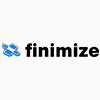|
All the boats rise
|
The tendency for stocks to rise together, sometimes due to over-optimism.
|
|
Altcoin
|
A token of any cryptocurrency that is not bitcoin.
|
|
Aussie
|
The Australian dollar (AUD).
|
|
Babysitting
|
When a trader holds onto a trade, despite losses, in the hope the market will turn around so they can break even or make a profit.
|
|
Bagholder
|
A trader who holds onto a losing trade for so long, it becomes worthless.
|
|
Barnie
|
USD/RUB. The pair gets its nickname from Barney Rubble (the Flintstones), whose surname looks a lot like ruble. See also Betty.
|
|
Beans
|
Used by commodities traders to refer to soybeans.
|
|
|
A trader who believes a market’s price will fall and/or has taken out a short position. See also bull and permabear.
|
|
|
A market in which prices fall for a sustained period of time, backed by widespread pessimism.
|
|
Beast
|
GBP/JPY. Called the beast because it has historically been volatile. Its other names include dragon, geppy, gopher and widow maker.
|
|
Betty
|
SP_EURRUB. Named after Betty Rubble (the Flintstones), drawing comparison between her surname Rubble and ruble. See also Barney.
|
|
Bill and Ben
|
Cockney rhyming slang for the Japanese yen (JPY).
|
|
Black gold
|
Oil. Alludes to its colour and the properties it shares with gold, including scarcity and historic high prices.
|
|
Bottom fishing
|
Buying or going long on securities after their prices have fallen considerably, expecting they will rise in time. See also vulture.
|
|
Buck
|
The US dollar (USD). Traces its origins to a time when Native Americans would trade buck skins (deer skins) for dollars.
|
|
|
A trader who believes a market’s price will rise and/or has taken a long position. See also bear and permabull.
|
|
|
A market in which prices rise for a sustained period of time, backed by widespread optimism.
|
|
Bullion
|
Gold or, more formally, gold bars (or those of other precious metals). Comes from Louis XIII’s finance minister, Claude de Bullion.
|
|
Cable
|
GBP/USD. So called because of the transatlantic telegraph cables that were used to transmit currency prices between London and New York in the 19 th century.
|
|
Choppy
|
High volatility within a narrow range.
|
|
Chunnel
|
GBP/EUR. Named after the channel tunnel that connects the UK with mainland Europe.
|
|
Crunching
|
When a market’s price is falling rapidly and goes beyond a presumed support level.
|
|
Dark pools
|
Liquidity that exists between institutions on private exchanges – those not available to the public.
|
|
Dead cat bounce
|
The tendency for markets to rebound quickly after a substantial drop, perhaps due to bottom fishing.
|
|
Dragon
|
Another name for GBP/JPY, based again on the pair’s historic volatility. Other names include beast, geppy and widow maker.
|
|
Dragon bonds
|
Asian bonds denominated in US dollars.
|
|
Euppy
|
EUR/JPY. Pronounced ‘yuppy’.
|
|
Fear index
|
|
|
Fiber
|
The euro (EUR). The origins of this name are unknown but it may refer to the durable cotton fiber that gives the euro its distinctive feel.
|
|
Fill or kill
|
An order which must be executed immediately at a particular price, or killed (cancelled) if the price moves.
|
|
Flight to quality
|
When investors look to move to investments they perceive to be safe – for example bonds, gold, or blue-chip stocks – in times of economic uncertainty.
|
|
Footsie
|
|
|
Fud
|
Fear, uncertainty, doubt.
|
|
Gas
|
The cryptocurrency token ether, which is sometimes described as the ‘gas’ of the Ethereum network because small quantities are ‘burnt’ (destroyed) when transactions are processed.
|
|
Greenback
|
The US dollar (USD). This nickname stems from the notes issued during the American civil war, which had a green underside.
|
|
Geppy/guppy
|
Another alternative for GBP/JPY. Other names include beast, dragon, gopher and widow maker.
|
|
Gopher
|
GBP/JPY or USD/JPY. Other names for GBP/JPY include beast, dragon, geppy and widow maker.
|
|
Hodl
|
Holding cryptocurrency despite massive losses or gains, in the hope it will regain its value or continue to increase. The term traces its origin to a 2013 post on the bitcoin talk forum, in which a user accidently mixed up the last two letters of ‘hold’.
|
|
Jigged out
|
When a market turns against a general trend, forcing the trader to close their position.
|
|
Kiwi
|
The New Zealand dollar (NZD), because the national symbol of New Zealand is the kiwi bird.
|
|
Loonie
|
A Canadian dollar (CAD). So called because Canadian dollar coins feature an image of a loon bird. Also sometimes used to refer to the USD/CAD pair. |
|
Matie
|
AUD/USD. Presumably referencing the stereotype that Australians often call their friends ‘mate’.
|
|
Mine/yours
|
Traders will sometimes say ‘mine’ to indicate they want to buy (go long), and ‘yours’ to indicate they want to sell (go short).
|
|
Mining
|
The computationally-intense process by which new information is verified and added to the blockchain, often rewarded with cryptocurrency tokens.
|
|
Narwhal
|
A Canadian unicorn.
|
|
Ninja
|
A name for USD/JPY.
|
|
Nokkie
|
The Norwegian krone (NOK).
|
|
Odd lot
|
A trade where the position size is less than the standard lot.
|
|
Old lady
|
The Bank of England (BoE). The BoE is sometimes called 'the old lady of Threadneedle Street', where it has been based since 1734.
|
|
Ozzie
|
An alternative spelling of aussie.
|
|
Permabear
|
A trader with a long-term negative view of a market. See also bear and permabull.
|
|
Permabull
|
A trader with a long-term positive view of a market. See also bull and permabear.
|
|
Prince Charles
|
A lot worth twelve contracts. Derived from ‘one doz’ (meaning ‘dozen’), which sounds like ‘one does’, a phrase sometimes uttered by the Prince of Wales.
|
|
Pump and dump
|
The illegal practice of encouraging investors to buy stock, then selling once the price has risen (to the investors’ detriment).
|
|
Rubber band effect
|
Another term for a dead cat bounce.
|
|
Satoshi (Sat)
|
The smallest divisible unit of a bitcoin, equivalent to 0.00000001 BTC. Named after Satoshi Nakamoto, the pseudonym used by the mysterious person or group that originally created bitcoin.
|
|
|
A high-volume trader that looks for small, quick-wins.
|
|
Single currency
|
The euro (EUR).
|
|
Shill
|
A con-artist who gives a misleading endorsement to a market or asset in the hopes its price will rise (to their benefit).
|
|
Short squeeze
|
A situation where those holding short positions on a market are forced to close their trades as its price increases rapidly.
|
|
Squiggly lines
|
The chart analysis tools and technical indicators used by some traders.
|
|
Stokkie/Stocky
|
The Swedish krona (SEK). Named after the nation’s capital: Stockholm.
|
|
Swissy
|
The Swiss franc (CHF).
|
|
Tanking
|
When a market falls suddenly.
|
|
Tenbagger
|
An investment that rises to 10 times its purchase price (or has the potential to do so).
|
|
Texas tea
|
Another name for oil, one that references its abundance in Texas.
|
|
The funds
|
USD/CAD. Origins unknown.
|
|
Token
|
A unit of cryptocurrency (e.g. bitcoin or ether). Tokens can actually represent any potential use of blockchain technology. This could be a digital right (e.g. intellectual property), share, means of accounting, or other form of reward.
|
|
Unicorn
|
A start-up company that has received a valuation of $1 billion or more. The name references the fact that successful startups, like unicorns, are exceptionally rare. See also narwhal.
|
|
Vulture
|
A trader that looks for struggling assets, hoping to profit from major turnarounds. See also bottom fishing.
|
|
Whale
|
A trader or institution with a large position in a market. Sometimes whales are so big they can influence market pricing.
|
|
Widow maker
|
Another name for GBP/JPY. Other names include beast, dragon, geppy and gopher.
|
|
Zone of resistance
|
The area between current support and resistance levels in which the price typically begins to resist further price rises, and may begin to fall.
|













































































